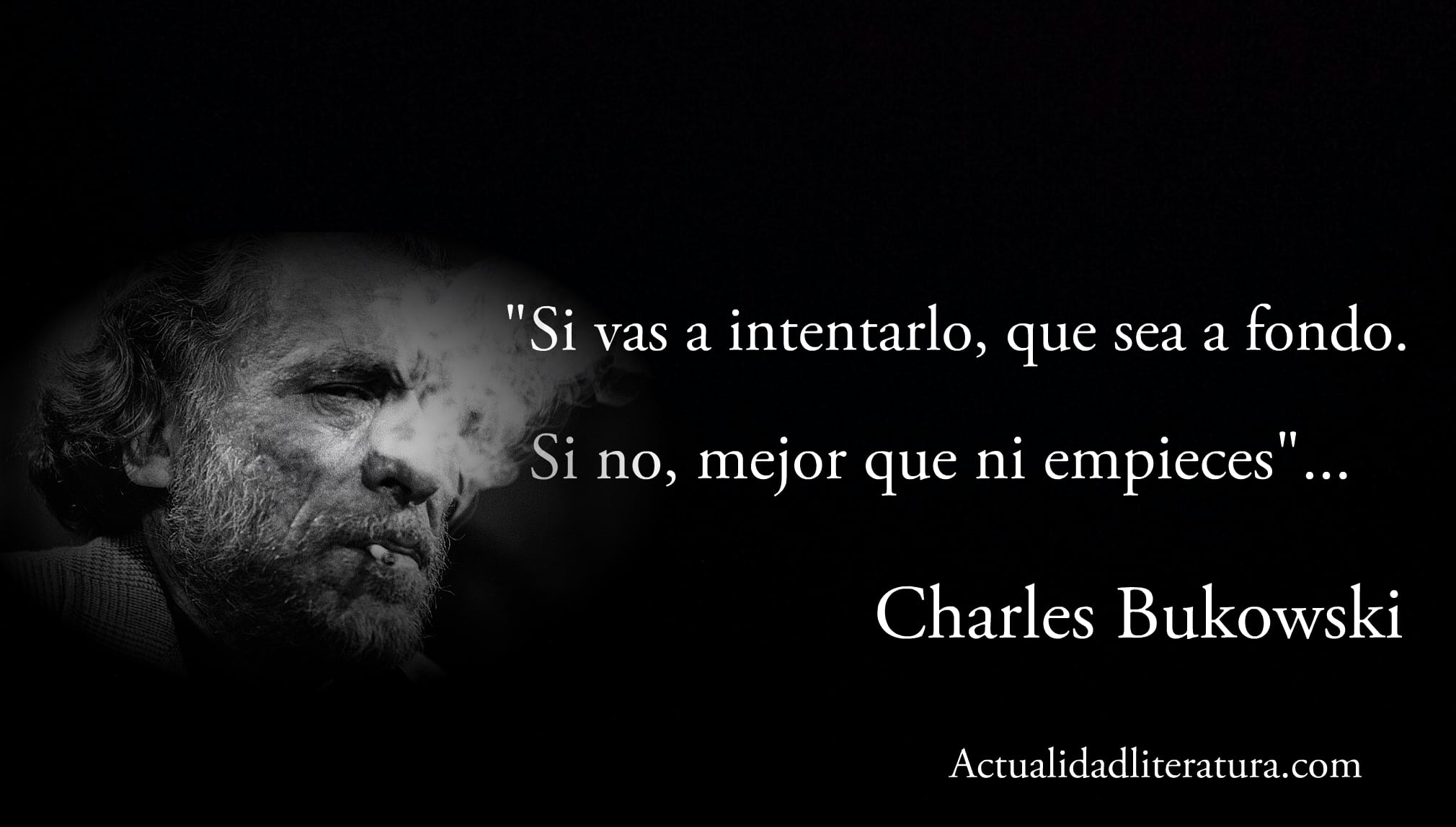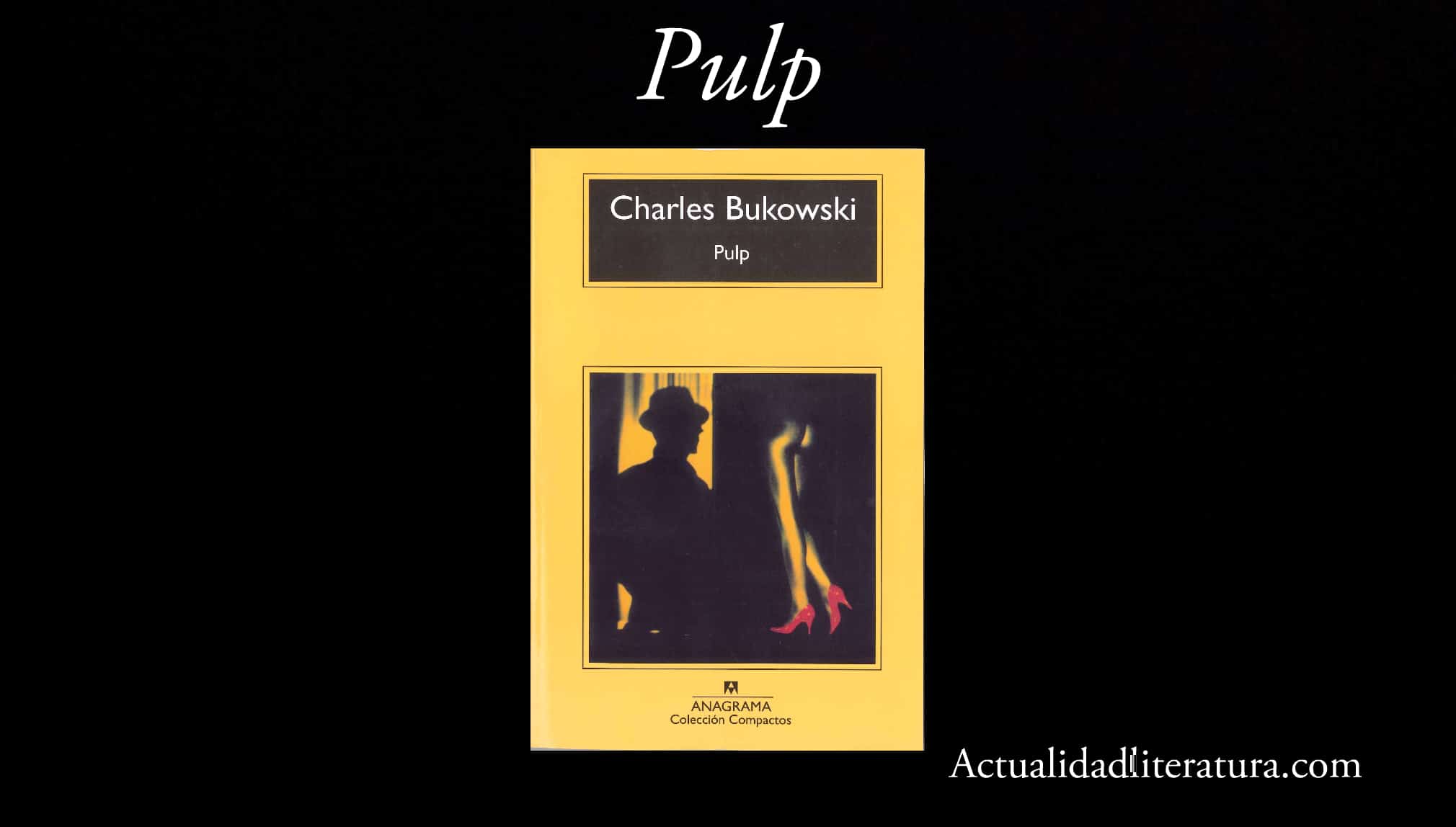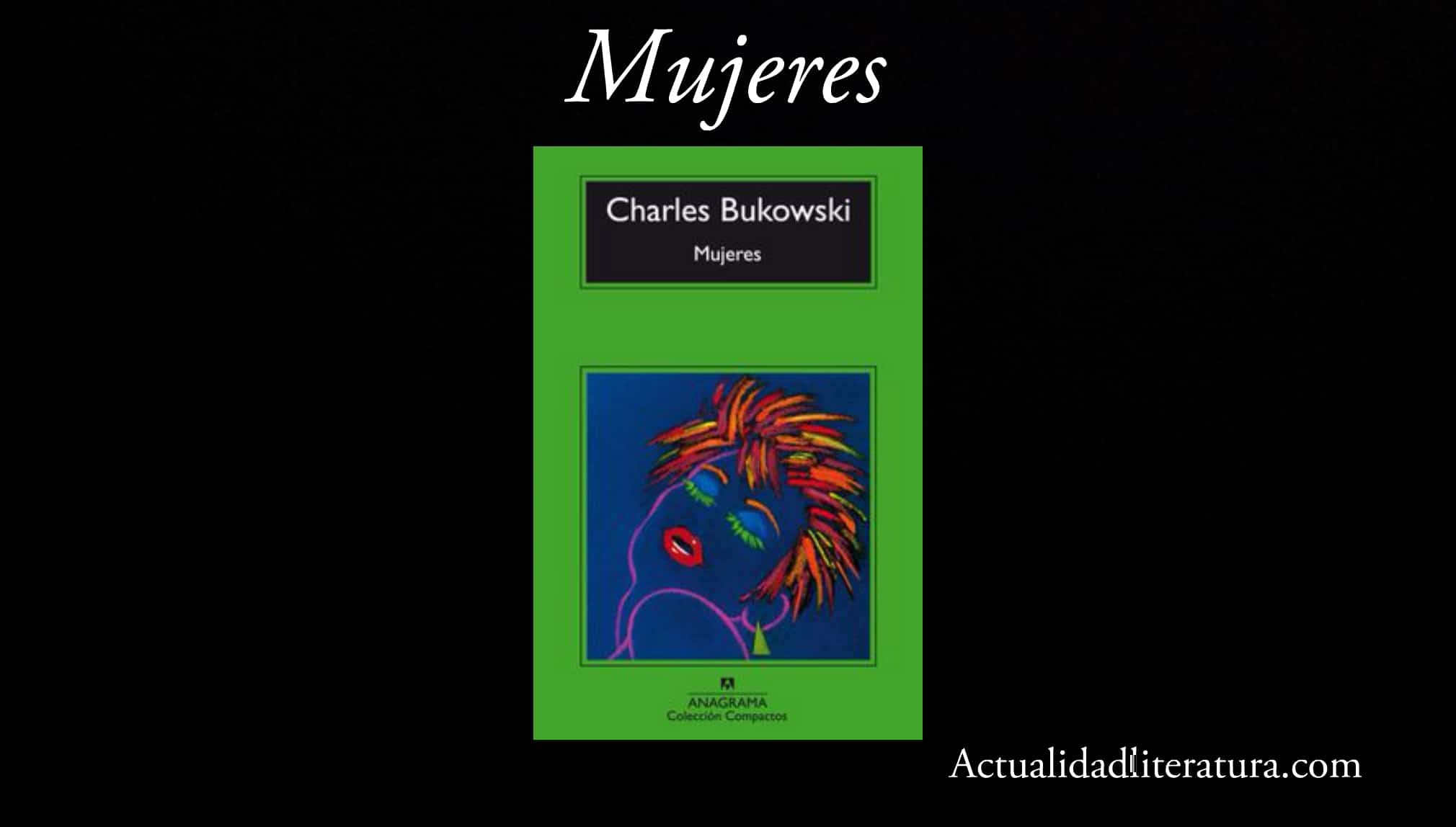
Charles Bukowski quote.
Henry Charles Bukowski, Jr. was a prolific German-American writer who built a reputation for his explorations of the "less pretty" side of America. Specifically, most of his innumerable short stories, poems, and novels describe the everyday life of the less affluent classes in Los Angeles.
Likewise, Bukowski's short fiction texts show his unabashed fondness for alcohol and anti-social behavior. In them he used a direct and eschatological language - mocking of any academic formalism - in order to clearly illustrate his idiosyncrasy. That is why he earned the animosity of a good section of American literary criticism.
The life of Charles Bukowski
Heinrich Karl Bukowski was born in Andernach, Germany, on August 16, 1920. His family moved to Los Angeles when he was two years old. He had a difficult childhood, as his father used to mistreat him physically and psychologically. In addition, due to his German accent, he was the subject of jokes by other children. They used to call him "Heini" (short for his name).
The beginning of a long association with alcohol
Upon reaching adolescence, Heinrich suffered from acne, which led to the rejection of the girls at his school. For these reasons, It is not surprising that at the age of 13 the young Bukowski began to cure his sorrows with alcoholic beverages. That habit became his "ritual" for writing. In later words of the author himself, he states: "It was magical, like killing yourself and being reborn every day."
The harsh experiences of the first two decades of Bukowski's life forged an isolated and degraded image of himself. After spending long stays in hospitals to treat his outbreaks, he completed his first writing in 1935. This story revolves around the pilot Baron Manfred Von Richthofen, of the First World War.
Studies and first jobs
After passing high school at Los Angeles High School, Bukowski took literature and journalism courses at Los Angeles City College between 1937 and 1939. At the start of World War II, he moved to New York. He took his dreams of becoming a writer with him and began to do various minor jobs. The following years were spent traveling, drinking and writing in "literary ostracism."
In 1944 he was detained in Philadelphia for 17 days. He was accused by the FBI of evasion of the selection of the American army. However, he was later declared ineligible for military service due to psychological reasons. That same year he made his first publication in the magazine Story, the short story «Aftermath of a Lengthy Rejection Slip»(Aftermath of Rejection by a Prolonged Slip).
Back to california
In 1946, he released another short story by the hand of Black sun press, "20 Thanks for Kasseldown”. Shortly after, Bukowski returned to Los Angeles, totally disappointed by his meager advances as a writer, thus initiating a period of “10 years of drunkenness”. At this stage he did not publish, but he did develop an alter ego that he used in numerous later fictional narratives: Henry Chinaski.
These texts include Erections, Ejaculations, Exhibitions and General Tales of Ordinary Madness (1972). In them he made clear - according to some critical voices - his misogynistic approach. Bukowski only stopped his alcoholism in 1955 because of a gastric ulcer, which he interpreted as a sign to return to writing. To a greater extent, he devoted himself to poetry.
Marriage and takeoff of his literary career
Between 1955 and 1958 he was married to Barbara Frye, with whom he lived in a small town in Texas. After the divorce, Charles returned to his alcoholism in California and continued to write poems. Said writings began to be published in the late 1950s in media such as normad (an avant-garde artistic magazine), Hearse Press's o The Outsider, among others.
Bukowski's definitive consecration came in 1969 due to his association with John Martin, legendary editor Black sparrow press. As a result, Charles was able to dedicate himself full-time to letters and do without secondary jobs — at the post office, mainly — to support himself. However, his true fame was obtained in Europe, not in North American lands.
The women in Bukowski's life
Bukowski lived in concubinage with Frances Smith during the first half of the 60s, with whom he had a daughter (1964), Marina Louise Bukowski. That year he also launched an innovative composition of micro poetry in lithographs and brochures entitled “Coffin 1". It was a small format compilation that included famous poems such as “The paper on the Floor"And"Waste Basketball", among others.
At the end of her relationship with Smith, she was in various informal love relationships. Among them, the one he had with Linda King, the poet and sculptor. Those business they fed the nucleus of many, many poems and short stories elaborated by Bukowski between the 60s and 70s. Precisely because of these writings, the German-American author was branded as "sexist".
Last years
Towards the end of the 1970s, Bukowski enjoyed an important reputation in his native Germany. Later, During the 80s, the North American author demonstrated his artistic versatility by collaborating with the elaboration of comics. The most important women in the final stages of Bukowski's life were Amber O'Neil (aka) and Linda Lee Beighle, whom he married in 1985.

Pulp by Charles Bukowski.
You can buy the book here: Pulp
In 1986, the magazine Times he called him "the American laureate of the underworld." Throughout his literary career he wrote six novels. The sixth —Pulp— it was published shortly before his death on March 9, 1994, in San Pedro, California.
Bukowski's work
Influences and legacy
Charles Bukowski stated repeatedly that his greatest literary influences were: John Fante, Fyodor Dostoevsky, Ernest Hemingway, Louis-Ferdinand Céline, Knut Hamsun, Robinson Jeffers, DH Lawrence, Henry Miller, Du Fu, and Li Bai. Similarly, its significance in American popular culture is undeniable.
Not surprisingly, Bukowski's figure and work have been referenced in various artistic expressions (cinema, theater, music ...). For example, musical bands Red Hot Chili Peppers, Fall Out Boy y Arctic monkeys. Similarly, Bukowski's novel Raw ten Rye was made into a movie under the direction of James Franco in 2013.
Features of Bukowski's poetry
Bukowski used a first-person narrator with a subjective perspective in his poems. Equally, his writings are a classic example of the modernist style, that is, structures without defined metrics or rhymes, devoid of metaphors. Now, in many poems he did use alliterations. In addition, he used parallels and, of course, harsh and vulgar language, typical of the "underworld."
These characteristics are palpable in the next line of the poem “a 350 dollar horse and a hundred dollar whore”(Translates to“ a $ 350 horse and a $ XNUMX whore): «you look and you look and you look and you can't believe it”… (“ You look and you look and you look and you can't believe it ”). Additionally, Bukowski made abundant use of the following resources mentioned below:
- Ironies.
- Unbelievable or misery-laden settings.
- Use of protagonists and antagonists (or alter egos of the main characters). For example, in the poem titled “About My Tortured Friend Peter,” the antagonist is Peter and the protagonist is the rapporteur.
- Paradoxical conflicts. This is evident in the poem mentioned in the previous point, in which Peter wishes to have a comfortable life as a writer. But the narrator makes it clear that it is an impossible premise to have both (live from writing and have well-being).
- Presences or witnesses from the shadows. In his poems, the rapporteurs and characters are familiar with the dirtiness of the harshest and most miserable environments.
- In the poem "a 350 dollar horse and a hundred dollar whore"The reporter clarifies that he is not a poet. Eventually, he changes his speech after sleeping with a woman, when she asks him what he does for a living.
- In the poem “About my tortured friend, Peter” the narrator alludes to “sad music” in reference to the harshness of the circumstances.
- Occasionally, Bukowski used personifications, hyperbole, and onomatopoeia in his poems.
List of Bukowski's Best-Known Poems
- Flower, Fist, and Bestial Wail (1960)
- Crucifix in a Deathhand (1965)
- At Terror Street and Agony Way (1968)
- Poems Written Before Jumping Out of an 8 Story Window (1968)
- To Bukowski Sampler (1969)
- The Days Run Away Like Wild Horses Over the Hills (1969)
- Fire station (1970)
- Mockingbird Wish Me Luck (1972)
- Burning in Water, Drowning in Flame: Selected Poems 1955–1973 (1974)
- Maybe tomorrow (1977)
- Love Is a Dog from Hell (1977)
- Dangling in the Tournefortia (1981)
- War All the Time: Poems 1981–1984 (1984)
- You Get So Alone at Times That It Just Makes Sense (1986)
- The Roominghouse Madrigals (1988)
- Septuagenarian Stew: Stories & Poems (1990)
- People poems (1991)
- The Last Night of the Earth Poems (1992)
- Betting on the Muse: Poems and Stories (1996)
Bukowski's novels

Women, by Charles Bukowski.
You can buy the book here: Women
Most of them allude to his alcoholic habits, his fondness for gambling, his times of unemployment, the various jobs he had to perform and a multitude of lovers. Although Bukowski was also able to show a sensitive side. For this reason he had no trouble diving into discussions of loss, love, authenticity, literature, and music.
List of Bukowski novels
- Post Office (1971)
- Factotum (1975)
- Women (1978)
- Raw ten Rye (1982)
- Hollywood (1989)
- Pulp (1994)
List of Bukowski Short Story Books and Collections
- Confessions of an Insane Man Enough to Live with Beasts (1965)
- All the Assholes in the World and Mine (1966)
- Notes of a Dirty Old Man (1969)
- Erections, Ejaculations, Exhibitions, and General Tales of Ordinary Madness (1972)
- South of No North (1973)
- Hot Water Music (1983)
- Bring me your love (1983)
- Tales of Ordinary Madness (1983)
- The Most Beautiful Woman in Town (1983)
- prying (co-authored with Jack Micheline and Catfish McDaris) (1997).
- Portions from a Wine-stained Notebook: Short Stories and Essays (2008)
- Absence of the Hero (2010)
- More Notes of a Dirty Old Man (2011)
- On Drinking (2019)
Bukowski's books and nonfiction stories
- Shakespeare Never Did This (1979)
- The Bukowski / Purdy Letters (1983)
- Screams from the Balcony: Selected Letters (1993)
- Living on Luck: Selected Letters, vol. two (1995)
- The Captain Is Out to Lunch and the Sailors Have Taken Over the Ship (1998)
- Reach for the Sun: Selected Letters, Vol. 3 (1999)
- Beerspit Night and Cursing: The Correspondent of Charles Bukowski and Sheri Martinelli (2001)
- Sunlight here I am: Interviews and encounters, 1963–1993 (2003)
An incredible author with a very tormented soul. He left us a legacy of great and crude works.
-Gustavo Woltmann.